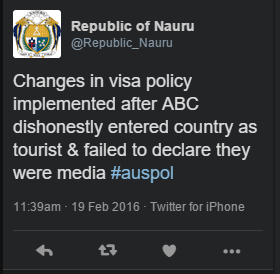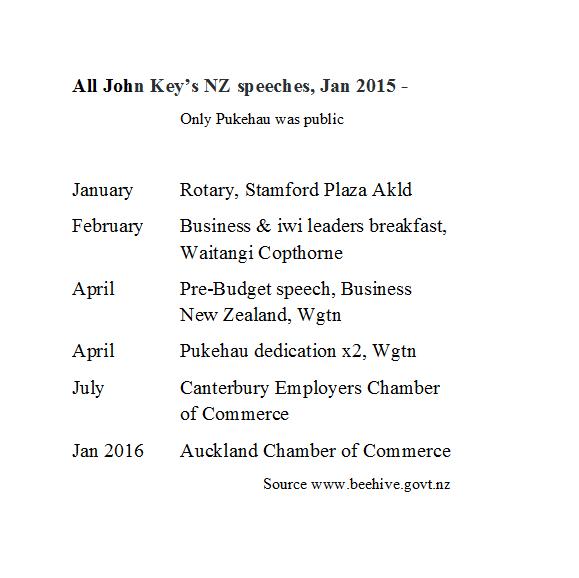The government has finally released its
Open Government Partnership Mid-term Self-assessment Report, just four months after it was supposed to. They're so proud of it that they didn't even issue a press release on it - just a quiet change to the heading of a web-page. The major change? The addition of the promised "statement from the Stakeholder Advisory Group" on the Action Plan and contents. Which, stripped of its waffle, comes down to one sentence:
Because of the brevity of time since the Stakeholder Advisory Group was formed, it is [sic] not been able to provide collective detailed comments on the particulars of the actions.
This is dated "September 2015" - from
before the draft was published. Which makes you wonder why it wasn't in the draft in the first place, and why it took them four fucking months to produce the final one.
But the SAG is "look[ing] forward to providing practical advice and leadership" on the development of the new Action Plan, and to "be[ing] transformational and to ensur[ing] civil society is actively engaged". So how's that working out for them? Likewise, how is the government's promises of learning the lessons of their disastrous first action plan and starting consultation sooner working out?
Badly. It appears they've learned absolutely nothing (or at least nothing they're willing to take on board), and gearing up to repeat the same mistakes they made last time.
The central problem is time: the second National Action Plan is due on June 30. But the SAG is only just
meeting today to discuss it. Which means they're running on pretty much the same timeline as they were last time - the one which
left no time for meaningful public consultation. As for
"co-creation", there's simply no time allowed to assess proposed commitments from the public, let alone have them signed off by Ministers. In other words, it'll be the same "consultation" as last time, in which we will be invited to comment on a pre-determined slate of (almost certainly pre-existing) proposals, with no real prospect for meaningful input. That's what New Zealand apparently means by "open government". And its a crock of shit.
And it doesn't have to be this way. Its not hard to find examples of countries which are doing this right, which are providing meaningful consultation and co-creation of OGP commitments. Just look at the
UK - or
Australia. But the big difference in both cases is both an earlier start, allowing ideas to be received, assessed, and analysed for credibility, and a commitment to actually listen to the public rather than presenting us with a
fait accompli. The government is well aware of these alternative processes they could have followed, and has chosen not to follow them. Which tells us that they are not committed to the Open Government partnership's values, and that our participation in it is simply a sham.

